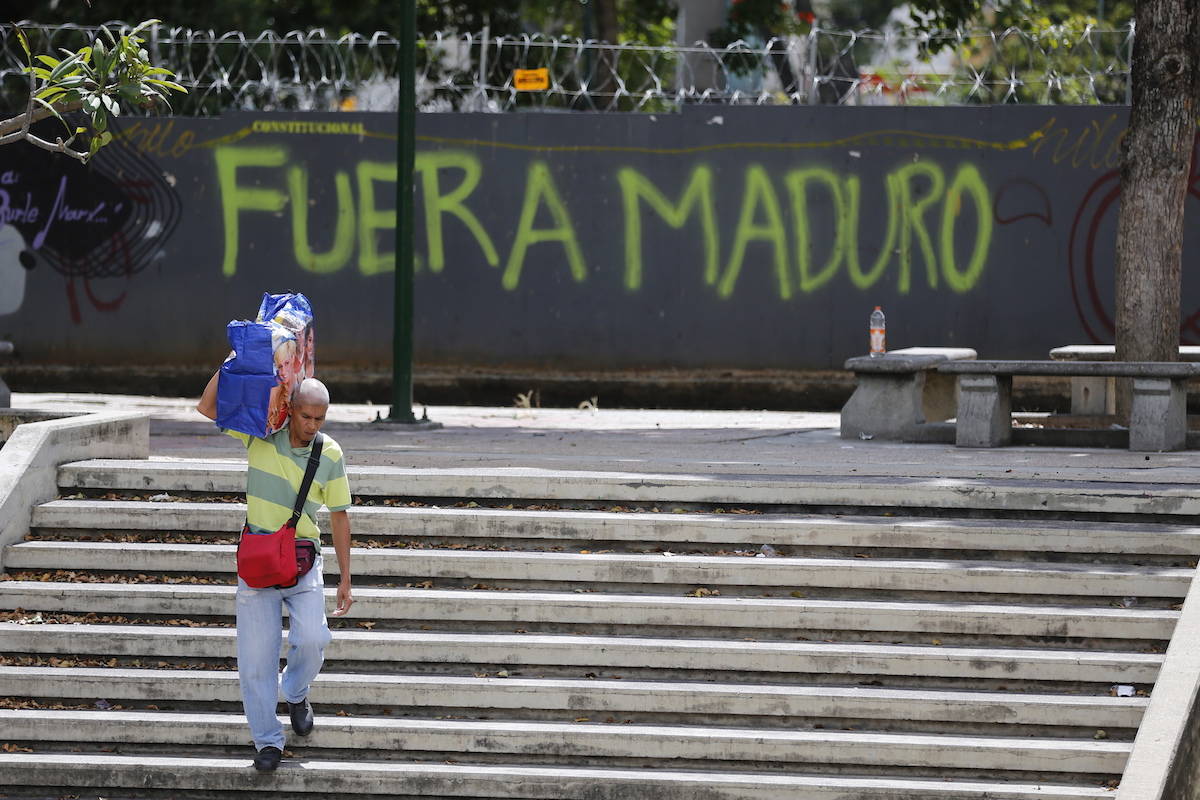The Trump administration and the embattled government of Venezuela appeared headed for a potentially dangerous showdown Thursday after President Nicolas Maduro ordered U.S. diplomats out of the country and Washington refused to comply, saying they would stay put.
President Donald Trump recognized Maduro’s main opposition foe, Juan Guaido, on Wednesday as the legitimate president as tens of thousands of Venezuelans filled streets to protest the Maduro government.
READ MORE: Freeland says Venezuela’s Maduro is now a dictator after illegitimate win
Trump’s move was quickly seconded by most countries in the hemisphere, including Canada, Brazil and Colombia —but notably not Mexico.
Secretary of State Michael R. Pompeo was scheduled to speak to a special session of the Organization of American States in Washington on Thursday. He was expected to further recriminate Maduro and his corrupt socialist government and attempt to expand a coalition dedicated to his ouster.
The session is likely to carry its own tensions. Maduro’s representatives will attempt to be seated at the OAS session, and it’s not clear how Mexico, often a mediator, will respond.
International isolation of Venezuela has been key to pressuring the Maduro government but has not succeeded in causing significant change in his leftist policies or harsh crackdown on civil dissent.
A decisive factor will be whether Venezuela’s military decides to intervene.
READ MORE: Trudeau off to Peru amid unresolved pipeline crisis
Thus far, the armed forces have remained loyal to Maduro. U.S. officials are hoping that the army’s loyalty will begin to crack as popular protests spread and Maduro appears increasingly isolated.
The diplomatic standoff with Washington represents a possibly volatile flashpoint, although there’s no sign that Trump plans to send U.S. troops, as U.S. presidents did in Latin America decades ago.
Maduro cut diplomatic ties with the United States and ordered American diplomats out of the country Wednesday. Pompeo said the U.S. government only recognizes Guaido, who wants to strengthen ties with the U.S.
“It could be a very dangerous situation,” said Benjamin Gedan, an expert on South America at the nonpartisan Wilson Center think tank in Washington.
Russia, China and Turkey sharply criticized the Trump administration’s actions, saying it was another attempt by the United States to interfere in the domestic politics of another country.



